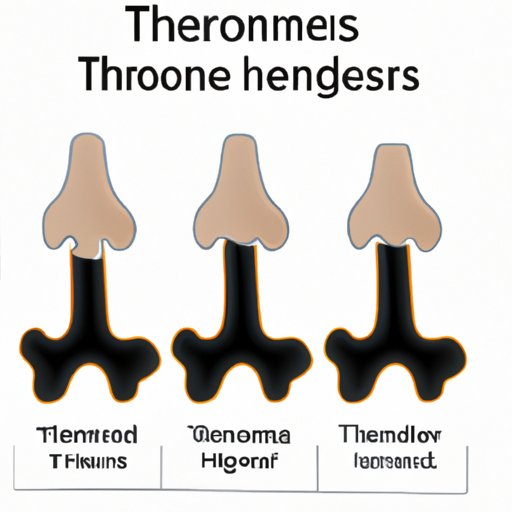The Impact of Hormones on Bone Growth and Development
Bones are an essential component of the human body, providing structural support and protecting other vital organs. As we age, our bones begin to weaken, which can lead to fractures and other health complications. Our bodies have several mechanisms in place to ensure healthy bone growth and development, with hormones being one of the most critical factors. In this article, we will explore the different hormones that affect bone growth and development.
Hormonal Mechanisms that Impact Bone Growth and Development
The endocrine system is responsible for releasing hormones that regulate various processes in the body. Hormones play a significant role in bone health and growth. Bones are continuously undergoing a process of bone remodeling, where old bone is replaced by new bone. This remodeling process is regulated by hormones that impact bone metabolism, including growth hormone, insulin-like growth factor, testosterone, estrogen, thyroid hormones, parathyroid hormone, and vitamin D.
Role of Estrogen and Testosterone in Bone Health
Estrogen and testosterone are sex hormones responsible for the development of sexual characteristics and reproductive functions. In addition, they play a crucial role in bone growth and development. Estrogen helps prevent bone loss by inhibiting bone resorption and increasing calcium absorption. Testosterone, on the other hand, enhances bone formation and remodeling. Men tend to have higher bone density than women because they have higher levels of testosterone.
During menopause, women experience a decline in estrogen levels, leading to bone loss and an increased risk of developing osteoporosis. Osteoporosis is a medical condition characterized by fragile bones that are more susceptible to fractures. Women who are postmenopausal should have their hormone levels checked regularly to prevent bone loss.
Effects of Thyroid Hormones on Bone Growth and Development
The thyroid gland, located in the neck, produces hormones that regulate various metabolic processes in the body. Too much thyroid hormone (hyperthyroidism) can lead to an increased risk of developing osteoporosis. This is because an excess of thyroid hormone leads to increased bone resorption and decreased bone formation. On the other hand, too little thyroid hormone (hypothyroidism) can also lead to bone loss. It is essential to have thyroid hormone levels checked regularly to prevent bone loss.
Parathyroid Hormone and Vitamin D – Their Effect on Bone Metabolism and Growth
The parathyroid glands are located near the thyroid gland and produce parathyroid hormone (PTH), which regulates calcium levels in the blood. PTH helps regulate bone metabolism by increasing calcium reabsorption and bone resorption. Vitamin D is essential for calcium absorption, making it a critical nutrient for bone health. A deficiency in Vitamin D can lead to bone loss, weakened bones, and an increased risk of fractures. Calcium and vitamin D should be consumed in adequate amounts to ensure healthy bones.
Growth Hormone and Insulin-like Growth Factor and their Role in Bone Growth and Development
Growth hormone (GH) and Insulin-like growth factor (IGF) play a critical role in bone growth and development, especially during childhood and adolescence. GH is produced in the pituitary gland and stimulates the liver to produce IGF-1, which promotes bone growth. Patients who experience excess GH production, known as gigantism or acromegaly, typically have larger bones, leading to an increased risk of fractures.
Stress and Cortisol and its Effect on Bone Health and Bone Loss
Cortisol is a hormone produced by the adrenal glands that helps regulate stress levels in the body. Prolonged exposure to cortisol can lead to bone loss due to increased bone resorption. Chronic stress levels can lead to increased cortisol levels, leading to increased bone resorption and decreased bone formation. It is important to manage stress levels to prevent bone loss.
Hormonal Imbalances and Bone Health
Hormonal imbalances can contribute to bone loss and the development of osteoporosis. Women who experience premature ovarian failure or menopause before the age of 40 have an increased risk of developing osteoporosis. Men who have low testosterone levels may also be at an increased risk of developing osteoporosis. Hormonal imbalances can be treated through hormone replacement therapy to improve bone health.
Conclusion
In conclusion, hormones are critical for healthy bone growth and development. Estrogen and testosterone play a significant role in bone health, while thyroid hormones, PTH, and vitamin D impact bone metabolism. GH and IGF-1 promote bone growth, while cortisol levels, when elevated, can lead to bone loss. Managing stress levels and ensuring hormonal imbalances are treated is essential for optimal bone health.
